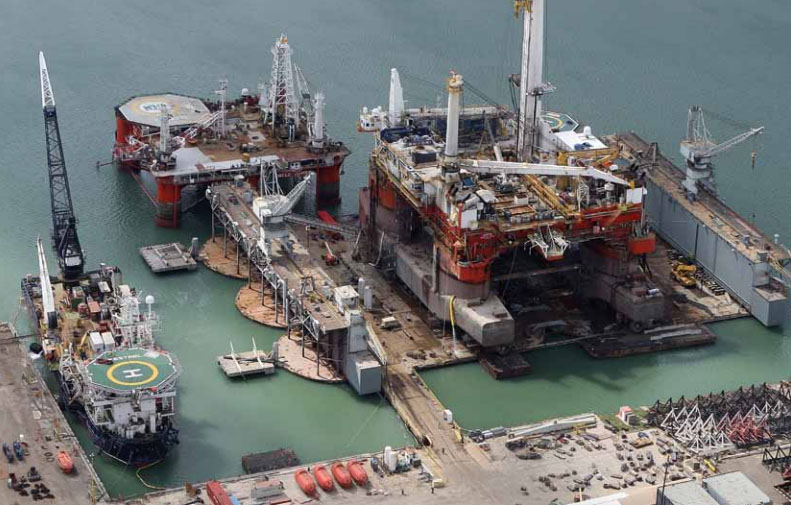(Bloomberg) — Keppel Corp., the world’s biggest oil rig builder that eliminated more than 10,000 jobs last year, said even a doubling of crude prices is failing to offer relief to an industry slammed by overcapacity as it braced for a prolonged slowdown.
While OPEC’s recent decision to cut output renewed optimism, with spending by some oil majors expected to increase, a quick recovery isn’t in sight, Chief Executive Officer Loh Chin Hua said. The company, which reported a 65% drop in net income last quarter, said it is closing some yards and signaled additional job cuts as part of efforts to pare costs.
“We are happy that oil prices are starting to pick up, so that’s a good thing,” Loh said on a conference call after the market’s close Thursday. “But we are also realistic and it might take a while before it will flow down and it’s an overbuilt market.”
Keppel and peers including Hyundai Heavy Industries Co. have been slashing jobs and scaling back capacity as spending cuts by explorers crimped demand for offshore drilling rigs. The Singapore-based company had mothballed two overseas facilities earlier. Shares of the company declined Friday, after having rallied more than 30% in the past year on expectations the oil rebound will spur a revival.
“We remain bearish on Keppel’s O&M division earnings outlook for 2017 as we see little improvement in operating fundamentals,” despite market expectations for an industry turnaround helped by oil prices rebounding, Royston Tan, an analyst at Daiwa Capital Markets in Singapore, wrote in a note dated Jan. 26.
At its offshore and marine division, Keppel reduced its direct workforce by 2,620 in the quarter through December. For the whole of 2016, the unit shed about 10,600 workers, of which 3,800 were in Singapore.
“The painful but necessary measures to rightsize our O&M division must continue,” Loh said.
In October, Keppel said its senior managers and directors were taking a cut in their salaries.
Fourth-quarter earnings were dented by additional provisions for impairment of S$313 million, Keppel said.
“What we’re going through is a very long, harsh winter,” Loh said. “It’s not business as usual.” The decision to mothball yards was taken to make the division “stronger and more efficient,” he said.
Bloomberg News by Kyunghee Park





